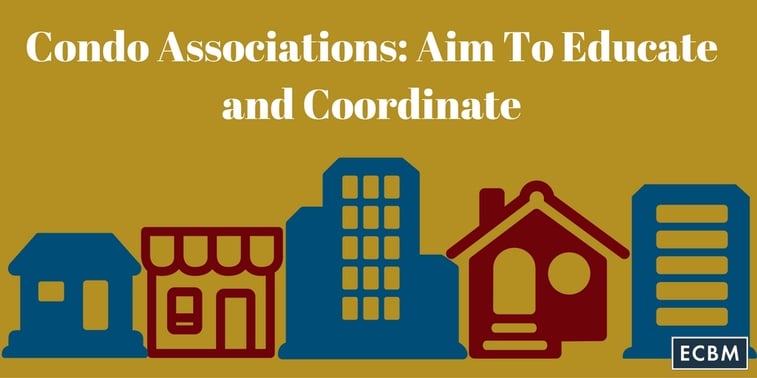
While an old proverb states that ignorance is bliss, oftentimes in the modern world ignorance is an easy way to get yourself in hot water. This can be seen quite easily in the world of condominium property claims. Condominium associations that move forward with property claim issues without understanding the legal background pushing the claims can find themselves in trouble without realizing it; driving up costs through lack of knowledge by taking short-sighted actions meant to keep costs down.
As an example, imagine a plumbing issue causes significant damage to a single unit within a condominium. The association, through its manager, makes the decision not to report the claim to its insurance agency or company, thinking that because the loss happened within a single unit it had no obligation to do so. Alternatively, the association may feel it had no responsibility to report because the damage was caused by the negligence of the unit owner. Unfortunately, the damage exceeds the association’s property claim deductible and the declarations and by laws make the association the primary responsible party for any damage to individual units exclusive of improvements or betterments. Now the association is stuck playing defense on a significant claim instead of taking the initiative in handling it.
Paula Devaney, Claims Director at ECBM, contributes,
“The handling of property claims within condominiums requires knowledge of four different areas: the respective state condominium act, the condominium declarations and by-laws, the condominium’s property insurance policy, and the unit owner’s insurance policy. These four documents will interact and set the background for how a property claim will be handled.”
States proscribe certain requirements relating to insurance, subrogation, and the like through their respective condominium acts. A uniform state condominium act does exist, but most states that have enacted it did so with modifications. Maryland, New Jersey, and Pennsylvania all have condominium acts requiring condominium associations to maintain property insurance on common elements and individual units exclusive of improvements or betterments. All three also require some form of liability insurance and waivers of subrogation.
Within the context of the state condominium act, every condominium association will have declarations and by-laws that declare its obligations with respect to handling property claims. The more detailed and thorough the condominium’s bylaws and declarations, the less complicated the handling of any property claims. Most condominium association declarations state the condominium association is the primary party responsible for property loss claims on not just common areas but for damage inside units exclusive of any improvements or betterments.
Finally, the insurance policies of both the condominium association and the unit owner will determine how a claim is processed. Most condominium association declarations and by-laws require mutual waivers of subrogation, preventing the respective insurance companies from suing either the association or unit owner for recovery after paying out a claim. Additionally, the handling of the claim will be dependent on respective deductibles.
Coordination of policies is vitally important in handling these types of claims. Oftentimes, the association policy has a much higher deductible than the unit owner policy. In these situations, the unit owner policy should make up the gap in the deductible. For instance, if the association policy deductible is $5,000 and the unit owner policy deductible is $500, the unit owner policy should pay the $4,500 difference between the deductibles with the association policy taking care of any amount in excess of $5,000.
To go back to our original example, the association that acts with sufficient knowledge of its own declarations and its insurance policy can take charge of a situation, expedite the processing of the claim, be in the forefront of getting damage estimates, and keep sufficient records of original unit specifications to know what in the unit is original and what is an improvement or betterment. Condominium associations that arm themselves with sufficient knowledge can save themselves both time and money by understanding the proper framework for the handling of these claims and ensuring that they fulfill the obligations of the law, their insurance policies, and their own bylaws.
